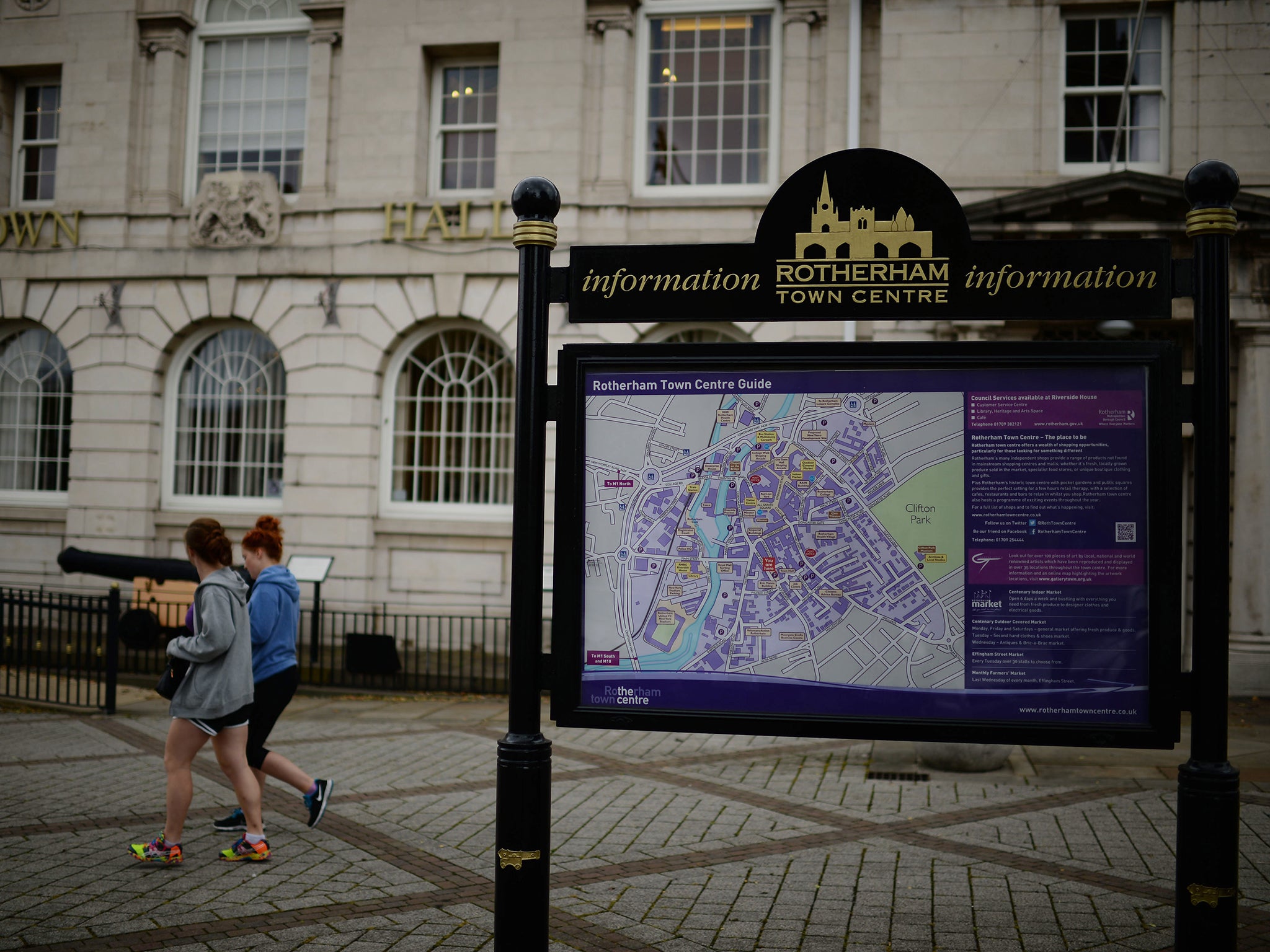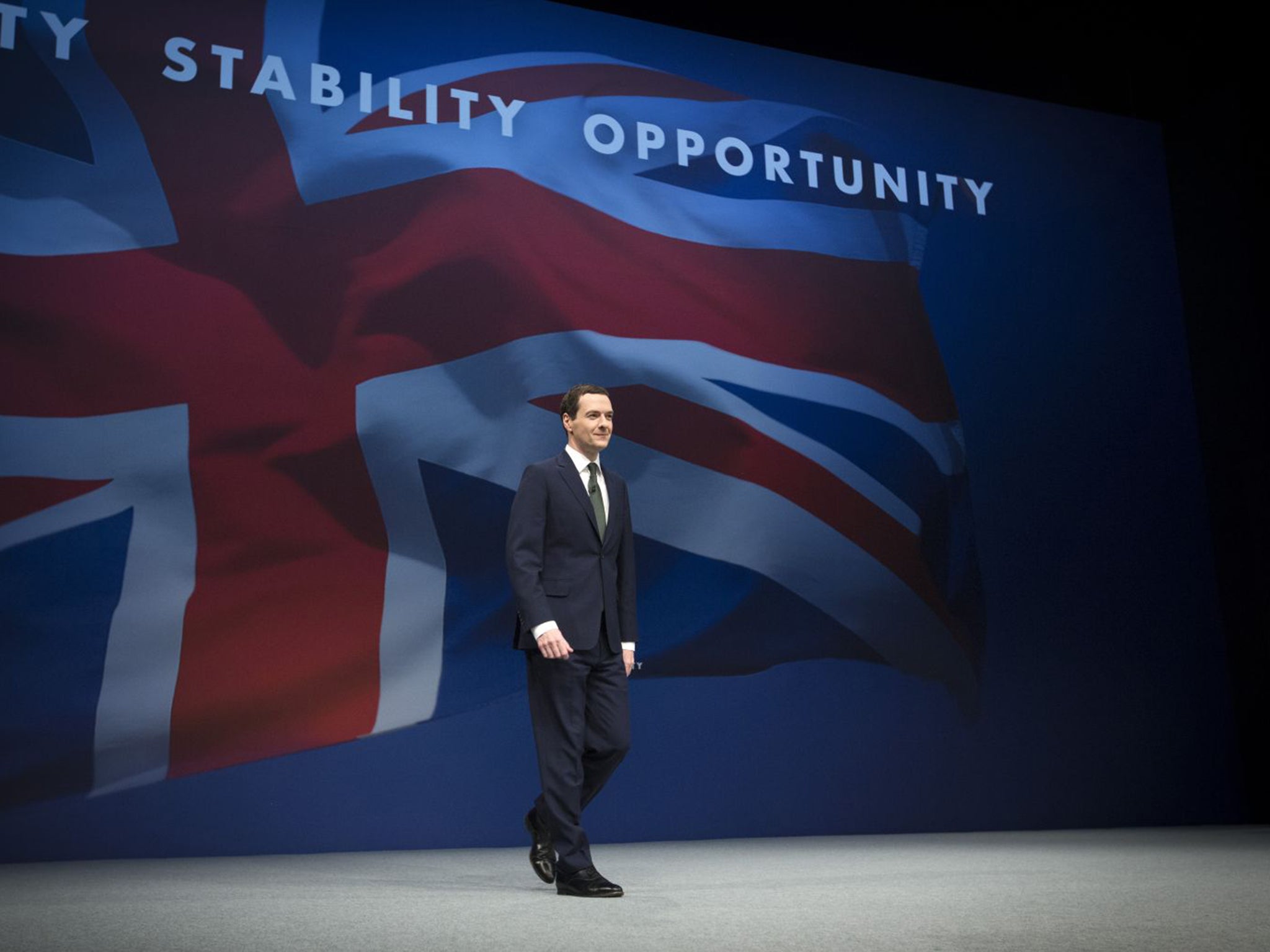George Osborne’s plan to let councils set business rates ‘will widen poverty gap,’ critics warn
Chancellor insists his 'devolution revolution' will regenerate high streets

A shake-up of English council funding by George Osborne could widen the gap between the richest and poorest parts of the country, critics have claimed.
Local authorities will be allowed to keep all the money they receive from business rates, a move which will hand the responsibility for more than £26bn to council chiefs.
They will gain the freedom to cut the tax to encourage companies to invest locally, while areas with directly elected mayors will also be able to increase business rates if they channel the extra money into infrastructure schemes.
Mr Osborne told the Conservative Party conference in Manchester: “I am embarking on the biggest transfer of power to our local government in living memory.”
He said: “Attract a business, and you attract more money. Regenerate a high street, and you’ll reap the benefits. Grow your area, and you’ll grow your revenue too.”
The Chancellor coupled the moves – which he hailed as a “devolution revolution” with the abolition of the Uniform Business Rate, which was introduced by the Thatcher Government in 1990 to stop high-spending councils sharply increasing taxes on businesses.
I am embarking on the biggest transfer of power to our local government in living memory
But the TUC general-secretary, Frances O’Grady, said: “By devolving business rates without any national safeguards, regional inequalities will get wider. The communities that most need investment are often those with the weakest business revenue base.”
Andy Burnham, the shadow Home Secretary, tweeted: “Big contradiction at heart of Osborne speech. Says wants to close North-South divide. But then announces taxation reform that will widen it.”
Melanie Leech, chief executive of the British Property Federation, said: “The fact some local authorities have a much higher tax intake than others could lead to rate distortion across the country and have knock-on effect on growth, leaving some local authorities struggling to keep up.”
However, the Local Government Association said it agreed that business rates should be a local tax set by local areas.
Mr Osborne, who repeatedly described the Tory party as “the builders”, also pledged to press ahead with the creation of a “Northern Powerhouse”.
He said: “I’m throwing everything I’ve got at it. I’ve brought new science here, promoted the arts here, backed transport links here, brought investment from places like China here. I don’t know if it will work. But I do know that if you don’t even try you are bound to fail, so I’m damn well going to try.”
Mr Osborne restated his determination to move the country back into surplus by 2019 to ensure that Britain is “better prepared when the storms come”.
He warned the economy was not immune from turbulence overseas, pointing to slowing levels of growth in the Chinese economy, the “very weak” state of the eurozone and disappointing American job figures.

“We must be prepared for whatever the world throws at us. Our plan for a surplus provides security for working people,” he said.
Hard decisions on spending priorities lie ahead, the Chancellor said as he confirmed moves to reduce Whitehall budgets by more than £20bn.
He repeated that the National Health Service, defence spending and the international aid budget would be protected from cuts. As a result, the Government faced “tough choices” in the spending review he will announce next month in the Commons.
But Mr Osborne added: “Remember this when our opponents line up to fight for every borrowed pound of government spending – the British people have heard the argument that the deficit doesn’t matter and they have rejected it.
The Chancellor likened the new Labour leader Jeremy Corbyn’s support for the “people’s quantitative easing” – printing money for investment projects – to the economic policy of Zimbabwe or the Weimar Republic in 1920s Germany. He said: “It’s not monetarism – it’s magic money-tree-ism.”
In a pitch to Labour voters, he said: “To these working people who have been completely abandoned by a party heading off to the fringes of the left, let us all here today extend our hand.
“Do you know what the supporters of the new Labour leadership now call anyone who believes in strong national defence, a market economy, and the country living within its means? They call them Tories.”
Join our commenting forum
Join thought-provoking conversations, follow other Independent readers and see their replies
Comments
Bookmark popover
Removed from bookmarks